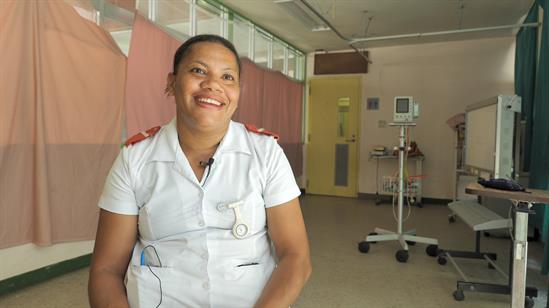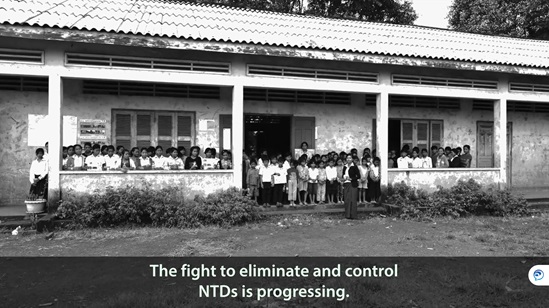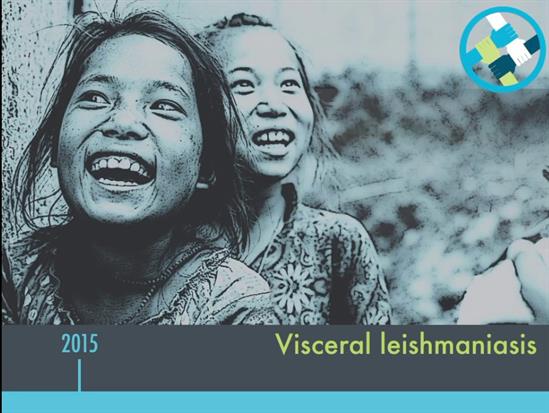/countries/vanuatu/f6_140042016_vu_01576.tmb-479v.jpg?sfvrsn=18bedb05_1)
Controlling and eliminating neglected tropical diseases
Deworming programme at a primary school in Vanuatu
Overview
Neglected tropical diseases (NTDs) are a diverse group of disease conditions that are most common in tropical and subtropical regions. These diseases most heavily affect people living without access to adequate sanitation, basic infrastructure and health services. In addition to significant morbidity and mortality, these diseases can lead to stigma and discrimination in communities. But these diseases can be effectively controlled, eliminated or eradicated through a combination of effective public health interventions.
Fifteen NTDs continue to be public health problems in 28 countries and areas in the Western Pacific Region. While significant progress has been made on control and elimination of NTDs in the Region in recent years, there is a vital need to consolidate these successes and further reduce the burden of disease. NTD elimination and control efforts are recognized as one of the most cost-effective interventions in global health today.
Regional success has been largely achieved through mass drug administration campaigns delivered in all endemic communities annually. For diseases with proven elimination strategies and tools, a focused approach continues to accelerate their elimination. For control and elimination of many other diseases, however, efforts are needed to gradually shift from reliance on preventive chemotherapy to a whole-of-system approach with multisectoral interventions and service delivery. This includes enhancing the water supply and sanitation coverage, delivering veterinary public health and vector-control interventions, and increasing access to vaccines and antisera for all vulnerable and affected populations in the Region.
WHO Western Pacific Regional Office works with Member States and other partners to catalyse multisectoral partnerships, update or develop comprehensive multisectoral national action plans to ensure that essential interventions and services for the control and elimination of NTDs reach all who need them so that no one is left behind, facilitate engagement and empowerment of communities so that impacts of interventions are enhanced and sustained, and strengthen their surveillance capacity to detect cases and foci of transmission, measure impacts and deliver targeted interventions towards and beyond the elimination of NTDs.
Key facts
- 10 out of 22 endemic countries achieved elimination of lymphatic filariasis as a public health problem since 2016
- 3 out of 10 endemic countries achieved elimination of trachoma as a public health problem since 2017
- In 2018 alone, more than 94 million people in 28 countries and areas in the Western Pacific Region are affected by at least one NTD.











